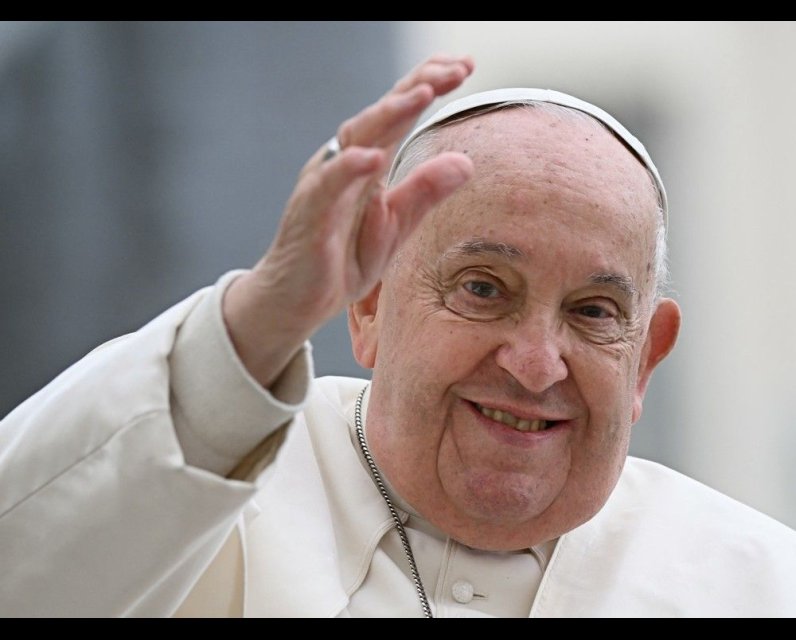Source Feed: National Post
Author: Michael Taube
Publication Date: April 21, 2025 - 07:31
Michael Taube: Francis's political papacy
April 21, 2025

The world has been shaken by the unfortunate news of Pope Francis’s passing. Many Catholics and non-Catholics kept the Pontiff in their thoughts and prayers, and now begin to evaluate his life and legacy.
Francis, who was born Jorge Mario Bergoglio in Buenos Aires, Argentina in 1936, was often described as a left-wing Pope. Brent Budowsky
depicted
Francis in a Nov. 26, 2013, op-ed in The Hill as someone who “can fairly be called a liberal populist reformer on matters of economics, finance, poverty, social justice, education and healthcare.”
He was taught by the Jesuits, whose members emphasize a worldview focused on social justice and awareness and take
vows
of poverty, chastity, and obedience. His political sympathies regularly veered to the left like his childhood teachers.
He opposed the excesses of laissez-faire capitalism and the free market economy, and
described
it in 2020 as a “dogma of neoliberal faith.” He wrote a controversial May 24, 2015,
encyclical
on ecology, Laudato Si (Praise Be to You). He suggested we’re in a period of “global environmental deterioration,” depicting the climate as a “common good” and said “we cannot adequately combat environmental degradation unless we attend to causes related to human and social degradation.”
He also had an unusual pipeline to the ideological underpinnings of communism and Marxism. In his
autobiography
, Life: My Story Through History, Francis apparently received communist literature from a woman named Esther. She was a biochemist and a communist and atheist who apparently respected different viewpoints — including the future Holy Father’s.
While Francis appreciated the publications that Esther gave him, they weren’t treated as gospel.
“I never embraced communist ideology,” he wrote, and “my reading of these things was on an intellectual level only.”
After he became Pope, he noted that “some people claimed that I spoke about the poor so often because I was a communist or a Marxist myself.” This clearly aggravated him, since he felt “talking about the poor doesn’t necessarily mean one is a communist: the poor are the flag of raw gospel and are in Jesus’s heart.” Moreover, he suggested “poverty has no ideology; the Church has none either, and shouldn’t: as I say so often, it isn’t a parliament! Not everything can be reduced to factions on the right or left.”
Francis rarely lived by those words and sentiments. He was one of the most heavily politically charged Popes we’ve had.
Pope John Paul II, an ardent anti-Communist who supported capitalism and defended individual rights and freedoms, always separated his personal views from his role as spiritual leader of the Roman Catholic Church in a way that Francis never could. Pope Benedict XVI had similar views to Pope John Paul II, but kept things in check and was more interested in reading and intellectual study and research. Even Pope John Paul I and Pope John XXIII, who were both identified with liberal theologies, paled in comparison to Francis’s thunderous roar against capitalism and conservatism.
If progressives want to claim Francis as one of their own, however, that would also be a mistake. His religious beliefs were fairly traditional, conservative and in line with Church doctrine.
Francis was opposed to abortion and euthanasia,
saying
at a New Year’s Mass at St. Peter’s Basilica on Jan. 1, “I ask for a firm commitment to respect the dignity of human life from conception to natural death, so that each person may cherish his or her own life and all may look with hope to the future.”
He, like many leading Catholic leaders, rejected capital punishment and
stated
the “death penalty was inadmissible.” While he once said
premarital sex
was “not the most serious sin,” his 2022
paper
The Catechumenal Itineraries for Married Life reemphasized his position and the Church’s that “chastity teaches the timing and the method of true love.”
And while Francis
appointed
several women to the Dicastery for Bishops and as undersecretaries, he didn’t break with the tradition of male-only Cardinals.
In fairness, Francis did some good work on various non-ideological fronts. He built a following with young Catholics and used social media to his advantage. He continued the tradition of Pope John Paul II and Pope Benedict XVI in building stronger ties to the Jewish community and
visited
Israel in May 2014.
The first South American-born Pope, he worked hard to extend interest in Catholicism across Latin America. He emphasized outreach with the Muslim community,
visiting
Abu Dhabi in 2019 and Iraq in 2021. He even became the first Pontiff to
address
a joint session of the U.S. Congress in 2015.
Francis was, in many ways, an everyman pope. His faith, compassion and generosity of spirit was undeniable. He always seemed friendly and approachable, too.
“I would like to smile always,” he wrote in a response to a child’s letter reprinted in his book Dear Pope Francis, which meant he would “smile at God…to thank him for all the good he does for people.”
While I and others had many points of disagreement with Francis, his papacy was that of someone who believed in uplifting people and society as a whole.
National Post
Communication released to Global News under the Freedom of Information Act provides a rare glimpse into how far the situation deteriorated for fishery officers in Nova Scotia.
April 23, 2025 - 04:00 | Ashleigh Stewart | Global News - Canada
Police across Ontario are ramping up enforcement efforts to tackle illegal car rallies, stunt driving and reckless driving by using new regulations to keep roads safe.
April 23, 2025 - 04:00 | Prisha Dev | Global News - Canada
Police across Ontario are ramping up enforcement efforts to tackle illegal car rallies, stunt driving and reckless driving by using new regulations to keep roads safe.
April 23, 2025 - 04:00 | Prisha Dev | Global News - Ottawa

Comments
Be the first to comment